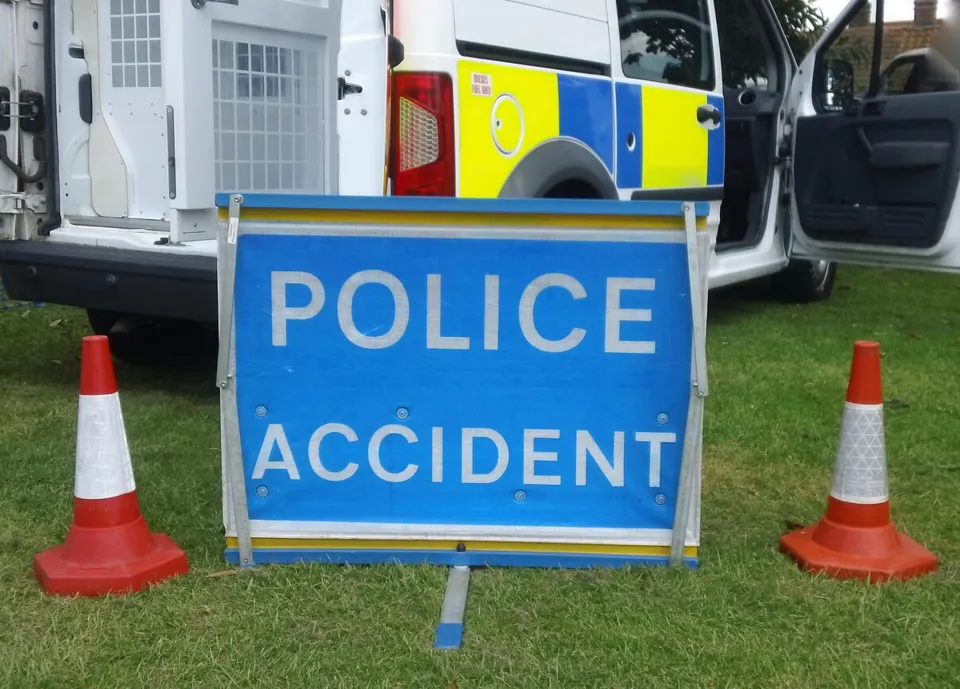National Highways is being urged to stop using the word ‘accident’ on roadside messaging, as it implies collisions are unavoidable, and risks obscuring accountability for death and injury on the roads.
The Department for Transport (DfT) recently announced it would no longer use ‘accident’ in some publications, after feedback from affected families and transport professionals.
However, the word remains in use in legislation and the DfT argues that it is ‘well-established and familiar to drivers’, and prescribed in signage guidance.
The AA, RoadPeace, the Parliamentary Advisory Council for Transport Safety (PACTS) and the National Police Chiefs’ Council (NPCC) are among those calling on National Highways to use 'collision' instead.
Edmund King, AA president, said: “Road deaths have plateaued in the UK and the fact that we see almost five deaths each day is an absolute tragedy.
“We must use everything we can to reduce this carnage. Most crashes are not ‘accidents’ but are avoidable, normally by drivers and other road users paying more attention.
“Describing every crash as an ‘accident’ in effect makes excuses for serious incidents.”
National Highways manages the UK’s strategic road network (SRN) as a Government-owned, arm’s-length company.
When an incident takes place, digital variable message signs (VMS) will display speed restrictions, lane closures, and sometimes the cause of disruption – including ‘accident’.
It defends its use saying that it is commonly understood by drivers, and because it reflects roadside signage such as ‘Police Accident’.
While the UK’s road signage manual, known as Traffic Signs Regulations and General Directions (TSRGD), prescribes using ‘accident’, National Highways admits it is possible to seek special authorisation to display ‘collision’ instead.
Detective Chief Superintendent Andy Cox, the National Police Chiefs' Council (NPCC) lead for fatal collisions, points out collisions are often a result of drivers’ actions, not accidents.
Recent changes to how collisions’ contributory factors are recorded, brought about by Cox, show more than a third of the UK’s 1,700 annual fatal collisions are related to drivers speeding, and a quarter to drink and drug driving – much higher than previously thought.
He said: “Words matter and are integral to changing culture and reducing road danger. Therefore, we must stop using the word ‘accident’ when describing crashes.
“This word implies it was just one of those things, it couldn’t be helped, or it was just bad luck.
“Instead, so often crashes are about a driver’s choice to be selfish, dangerous or reckless and as such we should describe it as a collision or crash. This allows for the public perception to appropriately consider driver choice and error.”
Nick Simmons, CEO of RoadPeace, the national charity for road crash victims, says while collisions are commonly called accidents, and it’s “something we’ve always done…that doesn’t mean we have to continue to use this language”.
“The majority of road crashes are preventable,” he added. “By continuing to use the word ‘accident’ we continue to normalise road crashes as inevitable occurrences.
“Changing language is vital to changing attitudes, and we urge National Highways, as part of its commitment and responsibility to reducing road harm, to abandon the use of the word ‘accident’ on its variable messaging signs.”
Jamie Hassall, executive director at PACTS, says that if the UK is to become a world leader in road safety then “getting the language right is one of the corner stones”.
Hassall wants to see “strong leadership”, and the UK “setting the example for others to follow”.
“When it comes to Road Safety, we need to get it right and the experts agree that the use of ‘accident’ removes accountability for what happed and should not be used,” he added.
National Highways says it will now undertake new research with customers on their preferences around signage wording. A spokesperson said: “National Highways recognises the importance of language, particularly on those who have been affected by road traffic collisions.
“We always want to ensure we are taking into account the views of all road users, so we will undertake new research with our customers to test their understanding and preferences on language to be used in this situation.”



















Login to comment
Comments
No comments have been made yet.